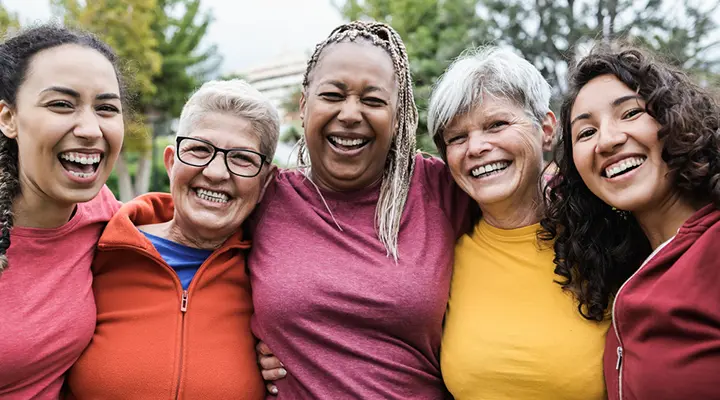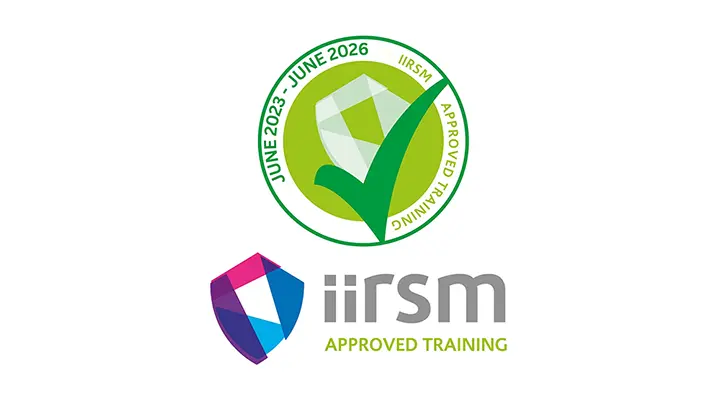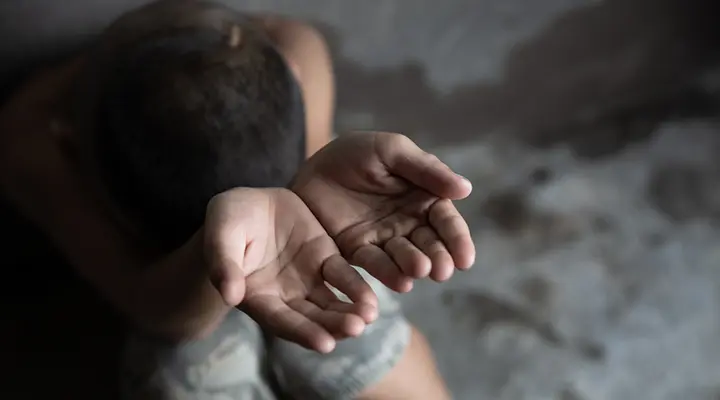When you think of slavery, you probably envision the gladiators of Ancient Rome or the trans-Atlantic slave trade of the 16th-19th century. Unfortunately, slavery is still happening today and, quite shockingly, at a bigger scale than ever before.
Today there are 50 million victims of modern slavery across the globe. The UN has warned that forced labour and forced marriage have increased significantly over recent years – with one in 150 people now a victim of modern slavery.
How many victims of modern slavery are there in the UK?
The number of victims of modern slavery in the UK has also been rising year on year, with the Global Slavery Index estimating around 122,000 people were victims of modern slavery in 2023. It’s not only adults – 7,019 suspected child victims were reported to the UK authorities in 2023.
It is estimated that modern slavery costs the UK around £33 billion per year – including the cost of support services, cost to investigate and prosecute criminals, and lost legal employment.
As a provider of an online slavery awareness course, we believe it is important to help individuals and businesses understand why this is happening, where it can be seen in the UK & how to identify some of the common signs.
What is modern slavery?
Modern slavery refers to human trafficking, slavery, servitude or forced labour. It includes forced marriage – which affects 22 million people, including nearly 9 million children. Labour areas you might see in everyday life include everything from farming to car washes.
People become victims of modern slavery through force, threats or deception. For example, someone might expect a well-paying job, only to find unpaid and gruelling work waiting for them. Criminals steal passports and tell people they can’t leave without reprisals against themselves or their families.
Ask someone to visualise what slavery looks like, and they may think of people frequently physically confined by shackles and chains. Modern slavery is based around psychological bonds of fear and intimidation rather than chains. Many victims in the UK may not speak English or know their rights, making it even harder to reach out for help.
For example, when several Romanian men were found in a condition of slavery in a carwash in Exeter – they didn’t know they had the right to work legally in the UK. They were in fear of deportation or legal problems if they tried to get paid employment.
What is human trafficking?
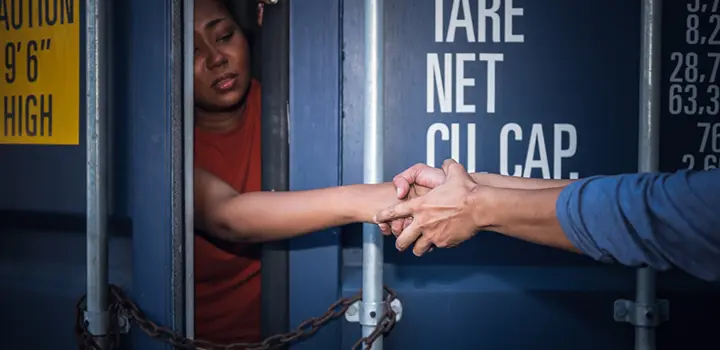
Human trafficking has different definitions, depending on which expert you ask. The United Nations divides it into three main categories:
- Sex trafficking
- Labour trafficking
- The removal of organs
Broadly speaking, human trafficking is a type of modern slavery which involves illegally moving people. For example, if someone in Vietnam is deceived or forced into travelling to the UK for labour or sexual exploitation – this would be an example of human trafficking.
Human trafficking doesn’t have to include crossing a country’s border. Most trafficking happens within the same country or region. There are many instances where people born in the UK become victims of modern slavery and traffickers move them within UK borders. This can happen to people from more disadvantaged backgrounds.
Why trafficked people can’t leave or run away
Sometimes, people are physically confined after being trafficked – they might be locked in an apartment where they are sexually abused or forced into domestic labour. In other situations, victims have to work to pay off “debts” incurred by the human smugglers who illegally brought them into the country.
Victims could receive a few pounds a day for long and gruelling hours, compounded with paying off “smuggling debts” and “rent” for poor living conditions. In this circumstance, the victims find themselves in a spiral of unfair debt, which is very hard to escape from.
In the case of human trafficking for organ removal, a trafficker may pressure or force a victim into surgery to remove organs, and then sell the organs to make a profit. When this happens the victim may survive, with lifelong implications of organ loss, or the person may die. There are probably around 12,000 illegal transplants happening a year, but it is an underreported and under-researched crime.
What types of modern slavery are there in the UK?
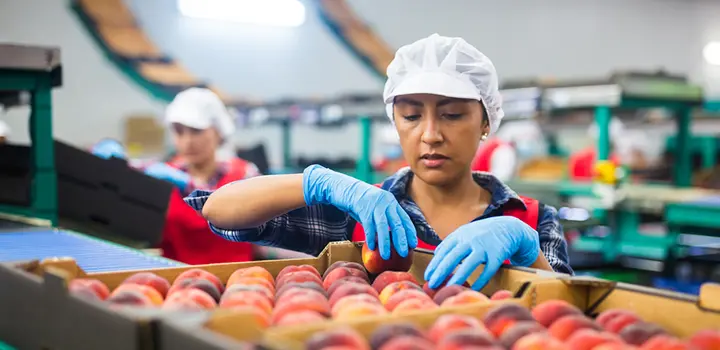
We can categorise modern slavery as labour exploitation, domestic servitude, sexual exploitation, and criminal exploitation. Forced marriage also puts women and girls in situations of exploitation and servitude.
People can be coerced into slavery through the use of violence or intimidation, accumulated debt, theft of their identity papers, or – if they don’t have the right to live or work in the country – the threat of exposure to the police or immigration authorities.
1. Sexual exploitation
Sexual exploitation is the most common form of human trafficking – making up nearly 80% of cases. Most of the victims are women and girls. Perhaps surprisingly, a United Nations report on human traffickers found that in 30% of countries which provided information about the gender of traffickers, women were more likely to be traffickers than men.
Sexual exploitation includes prostitution, lap dancing, forced marriage, stripping on webcams, phone sex lines, internet chat rooms, pornography, or “mail order brides”.
2. Labour exploitation
Labour exploitation can happen in many settings. On UK soil, modern slavery frequently occurs in plain sight, at the likes of nail and beauty salons, car washes, contract cleaning services and construction sites.
We also import the labour of enslaved people from around the world through what we choose to buy. For example, we benefit from slavery when we buy clothes on the high street that come from far-away sweatshops or when we use our mobile phones, which contain minerals that child slaves mined abroad.
You can go to the Slavery Footprint website to find out how many enslaved people are working for you.
3. Domestic servitude
Domestic servitude happens when the victim works within the home of their “employer”. This is one of the most challenging types of slavery to detect because it happens behind closed doors in private homes. There are cases of domestic servitude throughout the UK, including in some of the wealthiest areas of London.
The “employer” may pay a victim of domestic servitude some money – but it is exploitative or enslavement when the victim is unable to come and go freely, receives meagre pay, works for long hours, or experiences physical or sexual abuse.
For example, when parents do not allow children to go to school because they expect the children to work at home, those children are victims of modern slavery – even if the “employers” are their parents.
4. Criminal exploitation
Criminal exploitation happens when traffickers force victims to break the law. For example, victims might have to grow or sell drugs, or steal. In the UK, traffickers coerce children into criminality through gifts, money, status, or blackmail into the sale of drugs. This can be compounded with a poor family background or some kind of dependency.
Signs of modern slavery to look out for
Modern slavery is often “hiding in plain sight”, but there are signs an individual can showcase to look out for:
- Being afraid, nervous, or unwilling to make eye contact
- Appearing dishevelled
- Signs of physical abuse, such as bruising
- Constantly being accompanied – never or rarely being alone
- Not having access to their ID or passport
- An “employer” transports people to and from work
- An “employer” collects money on behalf of the person who did the work
- Not having access to suitable protective equipment for their work
- No social life or education
- Poor pay or no pay at all
- Working long hours and not having much time off or holiday allowance
- Being unable or unwilling to communicate – perhaps due to a language barrier
Company responsibilities for modern slavery
Companies should take steps to prevent modern slavery and human trafficking in their businesses and supply chains. For example, UK companies should have policies on modern slavery and human trafficking, take concrete action to prevent modern slavery, and provide training to staff.
By law, companies with a turnover of more than £36 million must publish an annual modern slavery statement. The statement needs to cover:
- Organisation and supply chain structure
- Policies on modern slavery and human trafficking
- Due diligence processes
- Risk assessment and management
- Actions taken to prevent modern slavery (and measurement against performance indicators, if relevant)
- Staff training on modern slavery and human trafficking
